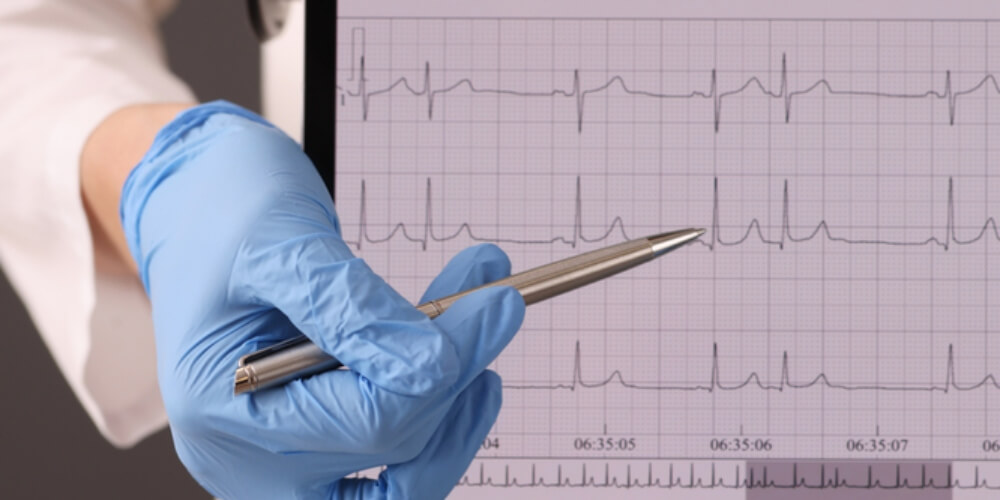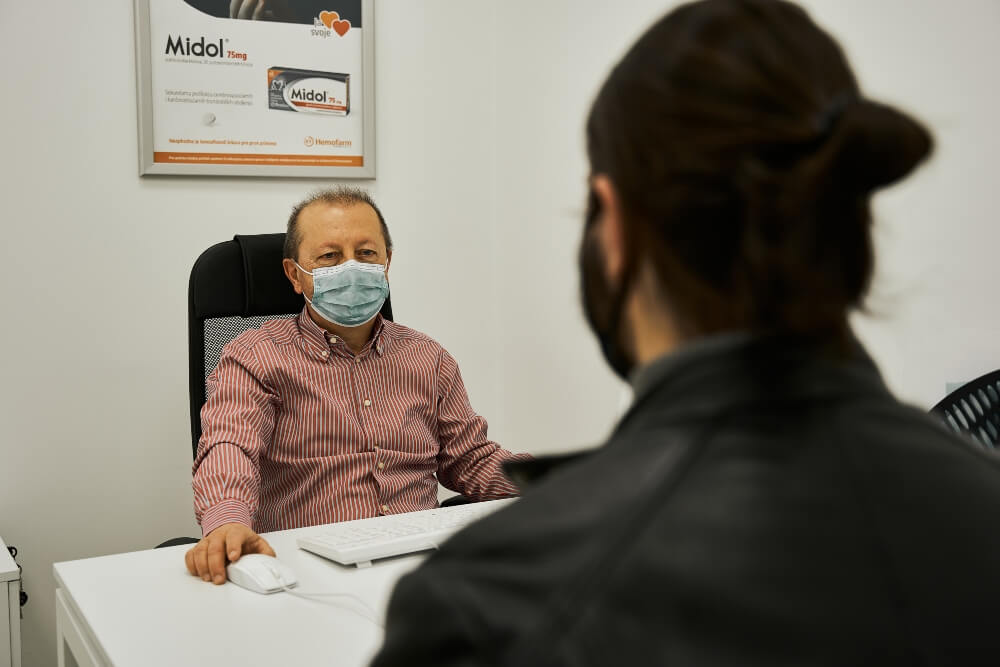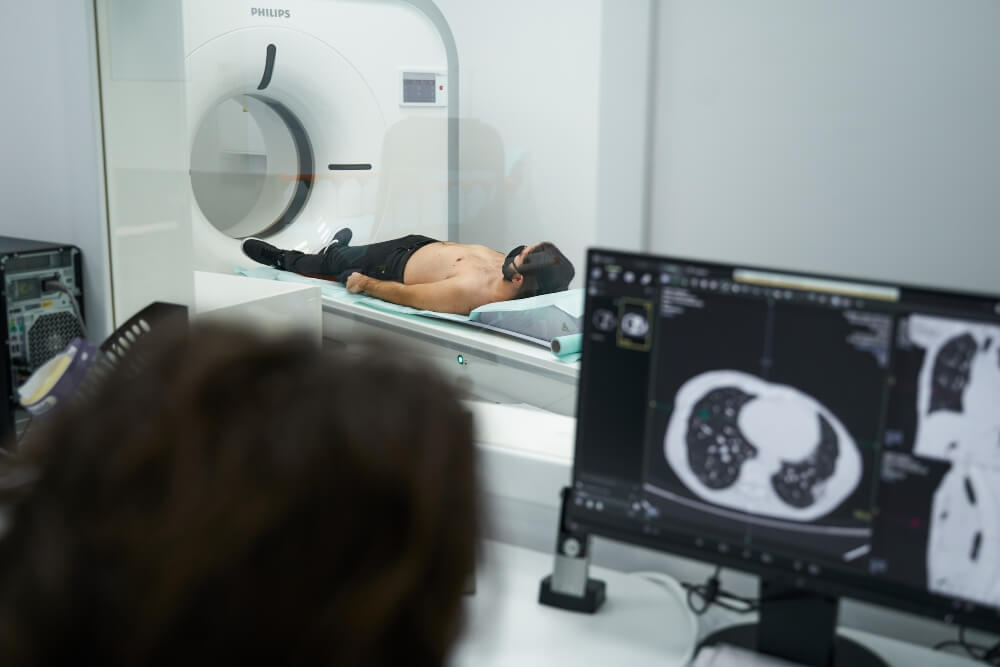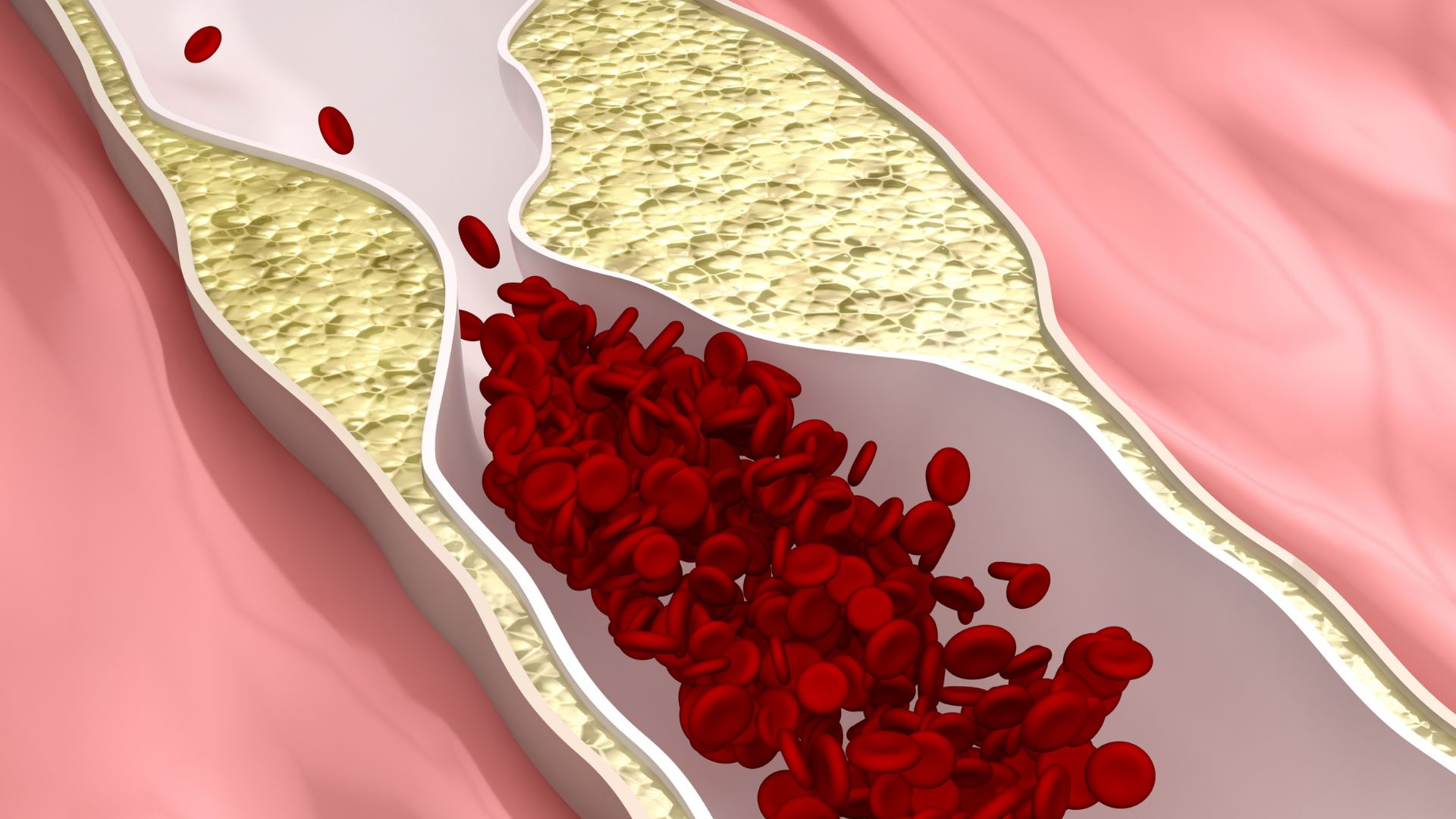Most people, when they think of a heart attack, assume that a strong pain in the chest is the only symptom. This is not always the case. This misconception can be dangerous because patients and their loved ones may not recognize a heart attack and delay seeking medical help.
Heart attack symptoms can be diverse and can even vary between individuals of different genders! By reacting quickly and calling for emergency medical help, we can save our own lives or the lives of those around us. Not every chest pain is a sign of a heart attack, but every heart attack is potentially fatal, so we must know when it occurs and what all the symptoms of a heart attack are.
When does a heart attack occur?
A heart attack or myocardial infarction occurs when there is a significant reduction or cessation of blood flow to the heart due to the blockage of arteries by plaque or the arrival of a thrombus. At that point, a part of the heart muscle dies. As much as a heart attack seems to happen suddenly, it is not. It is the final stage of ischemic heart disease, or one of the ways in which the disease can develop.
Heart disease often exists for a very long time without symptoms, so the person is unaware that they are sick. In these situations, a heart attack can be a surprise or unexpected. To prevent this and to know if you are at risk for a heart attack, regular annual check-ups and preventive examinations by a cardiologist are important. Preventive check-ups are of great importance for controlling the condition and timely reactions which are invaluable in cardiovascular diseases.
At Pulse Cardiology Center, there are a variety of examination packages tailored to different health needs of our patients. The most comprehensive package is the Total Heart Examination, which includes a complete blood count, ECG, echocardiogram, stress test, and examination of the risk for cardiovascular disease. After these analyses, you will have a very clear understanding of the condition of your heart, how much you are at risk, and if you are at risk, how to treat the condition that has been discovered.

What are the most common symptoms of a heart attack?
The most common symptom of a heart attack is chest pain, which can be intense, severe, and last for more than 30 minutes. However, this is not the only symptom, and some patients may not experience chest pain at all or may not find it particularly severe. This is especially true for diabetic patients, for whom chest pain may be absent.
What are some lesser-known symptoms of a heart attack?
Cardiologists want to raise awareness about heart attacks and their symptoms to encourage people to seek medical attention promptly and avoid the serious consequences that can result from a heart attack.
It is important to note that there are also early warning signs of a heart attack that, if experienced, should prompt immediate medical attention.
Early symptoms of a heart attack include:
- a feeling of discomfort or mild pain that comes and goes in the chest
- pain in the neck, shoulder, or jaw
- nausea or vomiting
- sweating for no apparent reason
- shortness of breath or feeling like you can’t get enough air
- sudden and severe anxiety or confusion
- dizziness or fainting
These can also be signs of other conditions, which can confuse patients and cause them to delay seeking medical attention. Even if you’re not sure what’s happening to you, it’s better to see a doctor for a false alarm than to be too late when a heart attack really happens.
Dizziness is a very common symptom of various health problems. It can indicate a number of things, which is why accompanying symptoms are important for a medical professional to plan and carry out a diagnosis. Treatment for dizziness involves treating the underlying disease, so it is necessary to determine which disease is present.
Symptoms of a heart attack in women
In women, chest pain is not necessarily the most common sign of a heart attack. They have reported a number of other signs they noticed before the attack, and some have experienced them for a month before the onset:
- Fatigue for no apparent reason that lasts for days or weeks
- Severe fatigue without reason
- Dizziness
- Feeling of anxiety
- Shortness of breath
- Digestive issues and pain in the gastrointestinal tract
- Pain in the center of the chest that sometimes spreads to the arm
- Pain in the back, neck, throat, and shoulders
- Pain in the jaw that extends to the neck
What should also be a warning sign to seek medical attention is if you feel anything like this for the first time, and you are simply not familiar with this state and it worries you. We repeat, it is better to seek help and find out it is not something dangerous, than not to seek help in time.
Symptoms of heart attack in women over 50 years old
When menopause occurs, it also marks a period in life when women are at greater risk of having a heart attack. Women over 50 years of age are often less likely to survive a heart attack than men.
In addition to the symptoms listed above, there are also some that women in this age group more commonly report:
- extremely strong chest pain
- pain in the chest, jaw, arms, back, shoulders, or stomach
- heart palpitations or rapid heartbeat
- sweating without reason
Heart attack symptoms in men
Symptoms of a heart attack in men can be identified by the following signs:
- Strong chest pain or pressure
- Discomfort or pain in the left side of the chest, left arm, shoulder, jaw, or stomach
- Feeling of discomfort in the stomach
- Breathing difficulties at rest
- Irregular heartbeat
- Sweating
- Dizziness or fainting
Sometimes there may be several symptoms present at once, and other times fewer symptoms. It all depends on the individual. Also, trust yourself, you know your body best. If anything worries you, regardless of the intensity of the discomfort, go for a check-up, don’t delay!
What to do when we suspect a heart attack?
Any suspicion of a heart attack requires calling emergency medical services or going to a healthcare facility immediately, without delay. If the patient receives care within the first two hours of symptom onset, there is a greater chance of survival.
Patients who already know they have a problem and have nitroglycerin with them should take it, but it is not a cure, only a help until the doctors arrive. The best care and rescue can only be provided by experts.

What does the treatment of patients after a heart attack look like?
The treatment will depend on the patient and their condition, associated diseases, age, and other factors. Administration of appropriate medications and rehabilitation are mandatory, and if necessary, the patient is further referred for bypass surgery or stent placement depending on the nature of the problem.
Regular check-ups with a cardiologist are mandatory throughout the patient’s lifetime.
How to avoid a heart attack?
This is a condition largely influenced by the things we do to our bodies. If we eat healthy, are active, do not smoke or drink, the chances of experiencing a heart attack are significantly lower. There are factors that we cannot influence, such as genetics, age, and gender, but even then, there is a way to control how important these factors are for us.
By undergoing regular check-ups and timely treatment of heart diseases, we can preserve our health and life. Schedule an appointment with us, regardless of whether you already know you have a cardiovascular disease or just want a preventive check-up. Explore which package of check-ups suits you best, and if you are not sure, we will help you choose.





